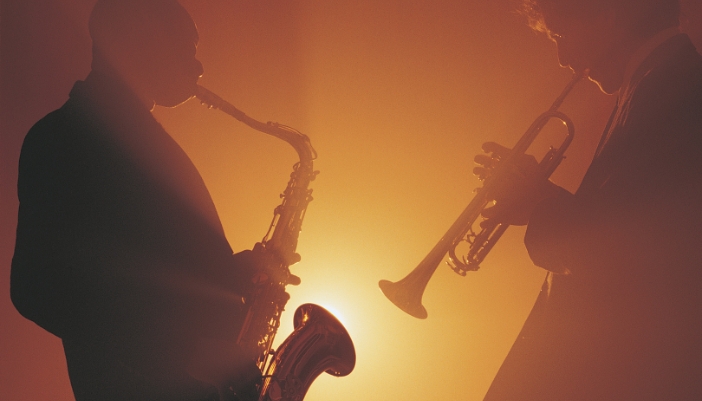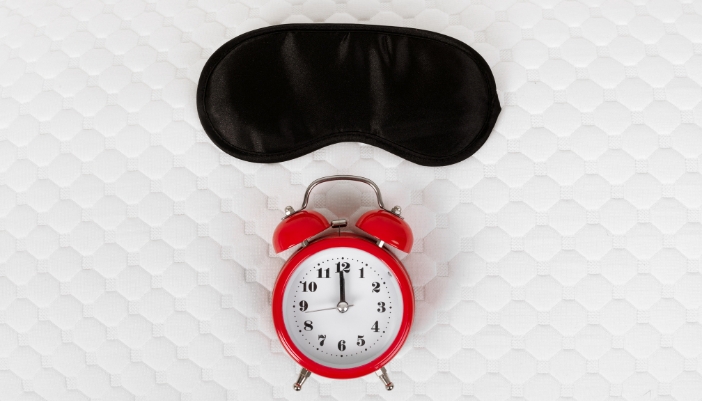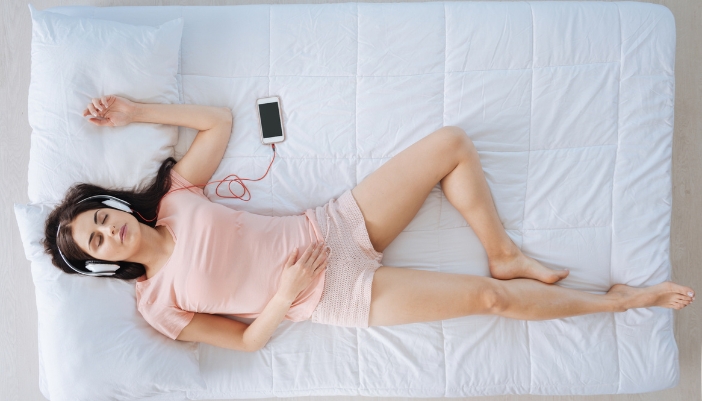Did you know the sounds and music you hear at night can impact your sleep? It’s not only about feeling sleepy; it's about how different sounds can affect our sleep quality. Whether it’s the calming sound of rain or a gentle melody, the right background noise can help you sleep deeper, while the wrong ones might keep you awake.
Studies have even shown that listening to music or specific sounds can trigger a relaxation response, where the heart rate slows down, muscles relax, and brain waves start shifting into sleep patterns!
Let’s look closer at the relationship between sleep and music and the benefits of listening to the right tunes!
What’s Your Genre

Not all tunes are created equal when it's time to turn down the sheets. From classical to jazz, the type of music you listen to can greatly impact how quickly you fall asleep and how restfully you stay that way.
- Classical Music is often hailed as the best genre for sleep, with slow tempos, steady rhythms, and harmonious melodies that can significantly lower stress levels and improve your sleep quality!
- Smooth Jazz’s nature keeps the mind engaged just enough to distract from daily worries, but the soft tones and mellow beats encourage relaxation.
- Ambient Music is designed to enhance your environment rather than dominate it, with slow, atmospheric sounds and lack of a definitive beat — it’s perfect for dozing off.
- Acoustic Music featuring instruments like acoustic guitar, piano, or harp offers a softer, more melodic form that helps reduce stress and anxiety, which is ideal for falling asleep!
Soothing Soundscapes

While music can serenade us to sleep, soundscapes play their unique role in sleep. Unlike music genres, soundscapes focus on immersive auditory experiences like the soothing patter of rain or the rhythmic crashing of ocean waves so your sleep remains uninterrupted.
- Rain Sounds: The steady, rhythmic sound of rain provides a soothing effect, mimicking a natural, tranquil environment that can help reduce stress and promote relaxation.
- Ocean Waves: The repetitive sound of waves crashing gently shores up sleep by creating a meditative state, ideal for transitioning from wakefulness to sleep.
- Rustling Leaves: Soft leaves whispering create a serene atmosphere, invoking a sense of peace and calm that can ease the mind into a restful state.
- White Noise: A consistent sound that masks background disturbances, white noise blends all audible frequencies to create a neutral audio backdrop, aiding in uninterrupted sleep.
- Pink Noise: Similar to white noise but with a softer, deeper quality emphasizing lower frequencies, pink noise can enhance sleep quality by promoting stable brain waves.
Fine-Tuning Your Sleep Soundscape

Crafting an auditory environment conducive to sleep involves a mix of the right sounds and smart usage.
- Select Sounds Wisely: Choose sounds or music that reduce stress or induce relaxation for you personally. Experiment to find what best lulls you into sleep.
- Optimal Volume Setting: The volume should be just enough to mask background noise without being overwhelming. A general guideline is to set it at a level where it's noticeable but not intrusive, allowing your mind to relax.
- Use a Sleep Timer: Most music apps and devices allow you to set a timer that turns off the sound after a predetermined period. Setting a timer for 30 to 60 minutes should ensure the music doesn't play all night and potentially disrupt your sleep later.
- Leverage Specialized Apps: There are specialized sleep apps that offer various sleep-friendly soundtracks and functionalities, such as mixing different sounds to create a personalized sleep soundscape.
- Sleep-Friendly Audio Gear: For those who prefer headphones, consider soft, sleep-specific headphones or earbuds designed for overnight use. These are made to be comfortable even when lying down and can provide a personal, immersive audio experience without disturbing others.
Mattresses for Sound Sleepers

For those who use headphones to fall asleep, choosing the right mattress is crucial for comfort and support:
- Comfort and Support: A mattress that balances softness and firm support is ideal. It should cradle the body without too much sinkage to avoid discomfort from headphones pressing against the ears.
- Breathability: Opt for mattresses with good airflow to stay cool throughout the night, enhancing sleep quality while using audio aids.
- Motion Isolation: If sharing the bed, consider mattresses that minimize movement transfer, ensuring uninterrupted sleep even with headphones on.
So, if your mattress isn’t doing the job or you want to start fresh, you shouldn’t wait to catch up on your Z’s! You can find your mattress upgrade at Nampa Appliance TV & Mattress! We carry many brand names with the best comfort, breathability, and motion isolation to keep you comfortable all night. And if you have trouble finding your match, don’t worry; contact our sleep experts, and we’ll lend a hand!
